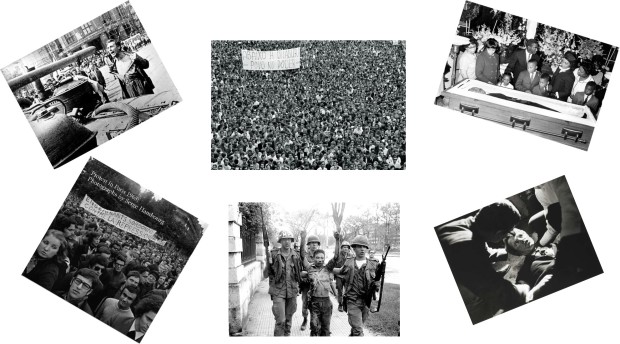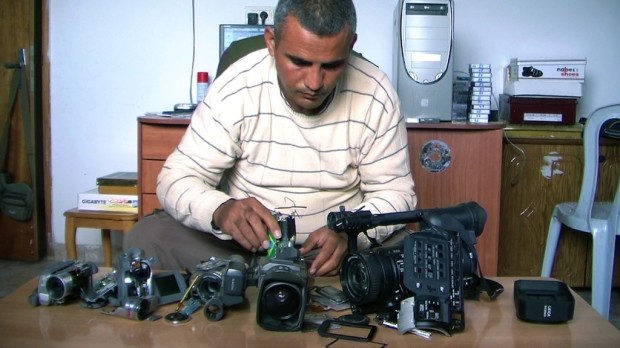1968
Few years have proved as pivotal as 1968, where social upheavals, colonial wars and assassinations of important public figures rollicked societies across the globe. Its ramifications can still be felt today.

1968 – The Year that Changed the World
The United States was mired in the Vietnam War and the unwinnable nature of the conflict for the Americans became more evident after the launching of the Tet Offensive by the North Vietnamese. The campaign initiated on the Vietnamese New Year (Tet) was the beginning of the end for US forces there, which eventually were expelled in 1975.
The US was further roiled by civil unrest following the assassination of Martin Luther King, and riots broke out in cities including Detroit, Washington, Chicago and Baltimore. The violent death of the non-violent activist had a smothering effect on idealism and the idea that society could be changed peacefully.
Students in Pairs, reacting to the stifling conservatism of French society overseen by the imperious Charles De Gaulle, protested on the streets in May, and ushered in new paradigms for ideas and behaviors. Behind the Iron Curtain, there was open revolt against Communist Party rule when in Czechoslovakia Alexander Dubcek ushered in an era known as Communism with a Human Face. During this brief period, freedoms were decreed and reforms enacted, all challenging the homogenous role of the Communist Party. Moscow’s patience ran out and the Warsaw Pact invaded with 700,000 troops, brutally ending this flirtation with western ideas of democracy. This Prague Spring was short-lived.
Another high profile assassination in the US rocked the political scene when Robert F. Kennedy, John Kennedy’s younger brother, was killed after delivering a campaign speech for his presidential run. Kennedy had declared himself committed to pulling US troops out of Vietnam and promised to enact a progressive agenda. Richard Nixon eventually became president, a dour man who catered to a “silent majority” averse to the social changes sweeping the US.
Societal convulsions were not limited to Europe and North America. In Latin America, progressive forces inspired by the Cuban and sexual revolutions, were challenging the conservative establishment and suffering severe reprisals for that.
In Mexico, just ten days before the Summer Olympic Games in Mexico City, the authorities gunned down over 300 young people protesting in the streets, in an event known as Tlatelolco Massacre. In Brazil, after the Passeata of 100,000 people march, the military junta adopted A-I 5, essentially denying any rights to those opposed to the dictatorship. The “years of lead” unfolded as one of the most violent and ominous periods of 24-year-old reign of oppression by the Brazilian military.
Some of the idealism of that post-World War Two generation has permeated the societies where already established democracies enacted much needed reforms and countries under dictatorship became working democracies. Yet the year 1968 leaves a lot of what ifs. What if Martin Luther King and Robert Kennedy had lived, what if the US had left Vietnam when the writing was on the wall; what if the military regime in Brazil had been toppled at the time; what if the cracks in repressive communism had preempted its downfall earlier.
The world would likely be a different place.

